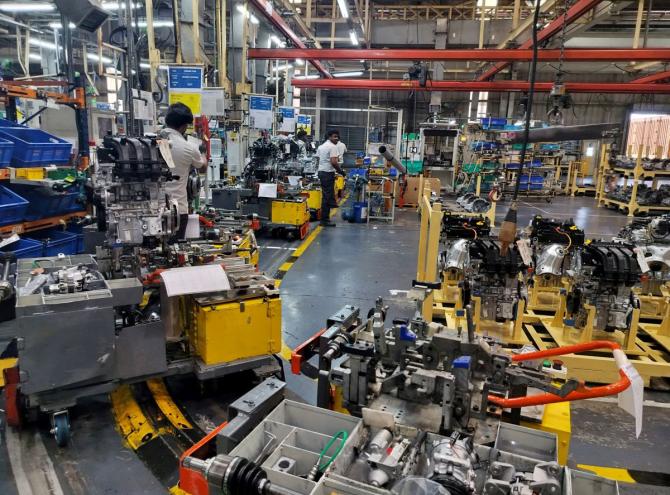The government is planning to tweak its procurement policy to give a fillip to domestic manufacturing.

The industry department has floated a proposal to raise the minimum local content requirement for public procurement for Class-I and -II suppliers from 50 per cent currently to 70 per cent, and 20 per cent as of now to 50 per cent, respectively.
However, it has suggested exempting defence production, electronics and information technology, telecommunications, mines, railways, power, ports, and shipping & waterways from the enhanced limits, a senior government official told Business Standard, requesting anonymity.
“The inter-ministerial consultation process is on. The departments and ministries have been asked to send responses to DPIIT (Department for Promotion of Industry and Internal Trade).
"The proposal will need Cabinet approval and will most likely be taken up by the next government,” the official added.
An email query sent to DPIIT remained unanswered till press time.
At present, firms that produce goods, services, or works with at least 50 per cent local content are called Class-I local suppliers.
They are given the highest preference in public procurement.
A Class-II local supplier's goods, services, or works have 20-50 per cent local content.
A non-local supplier is one with less than 20 per cent local content.
This class is generally the least preferred in public procurement under the Public Procurement Order, unless there are no available Class-I or -II local suppliers for a specific requirement.
“It is a positive move for Make In India. We will implement it as and when it is notified,” Government e-Marketplace (GeM) chief executive officer P K Singh told Business Standard.
Former industry secretary Ajay Dua said that over time, the minimum threshold had to be increased to promote local industries and increase the contribution of manufacturing to GDP.
“Allowing exemptions to certain essential sectors where the imported items have a multiplier effect on the economy is a good idea.
"The country will be at a disadvantage if we insist on enhanced threshold limits in all sectors,” he added.
The Ministry of Commerce and Industry accords exemptions to sectors on a case-by-case basis under the current public procurement norms.
Last year, Railways had been granted exemption from public procurement with preference to Make In India order for 5W walkie-talkies after those supplied by a local manufacturer were found unsafe for railway operations.
In December, the Centre had pulled up several ministries and their procurement agencies after repeated instances of domestic procurement norms being flouted in government tenders.
Conditions placed in these tenders were found to be against local suppliers, with many prerequisites essentially eliminating them from the bidding process.
Meanwhile, some foreign companies in the infrastructure sector have argued that even when big foreign players meet localisation requirements, the norms allow local players with little experience to start price wars in the supply chain.
“We are seeing a number of cases where small companies do a technology transfer agreement with some global company, without the proper know-how or the know-why.
"It will affect our business since it is a little bit of a struggle when it comes to a price war,” a top executive of a rail component manufacturing company said.












 © 2025
© 2025